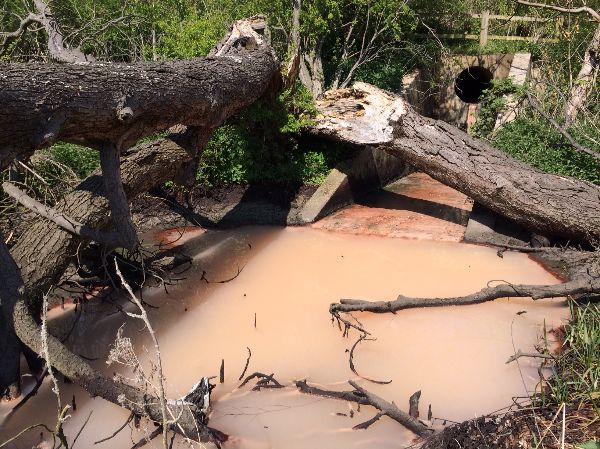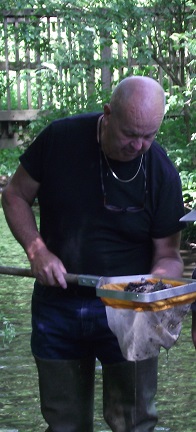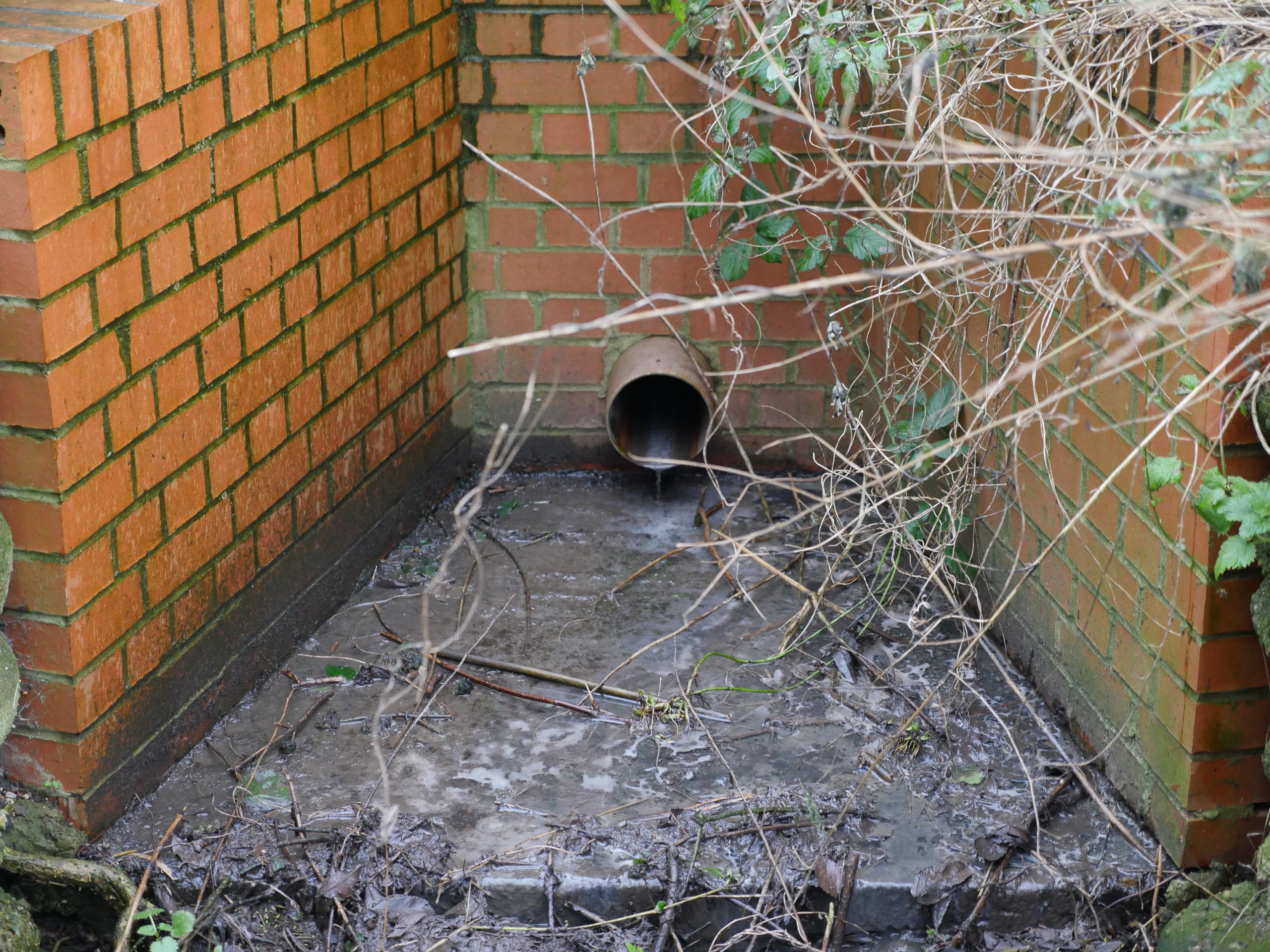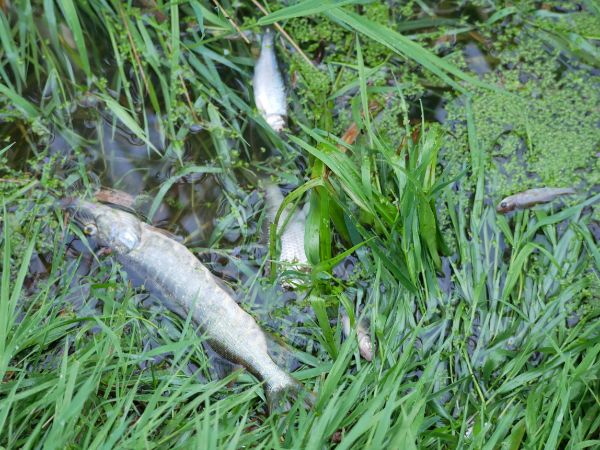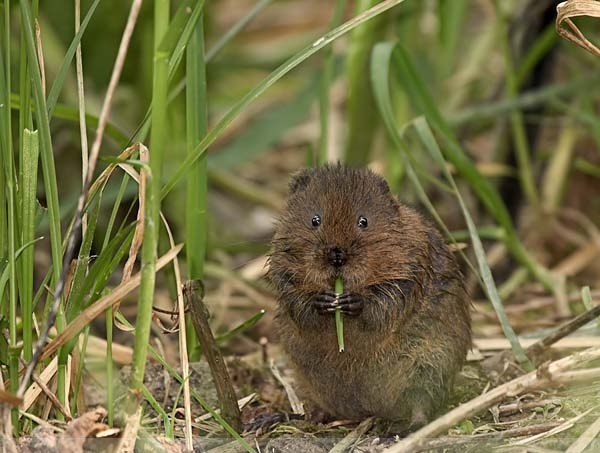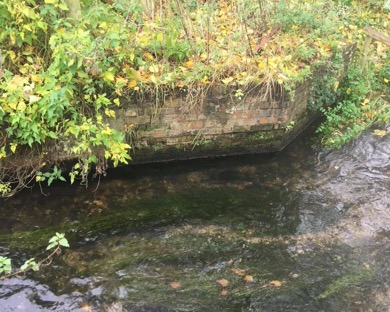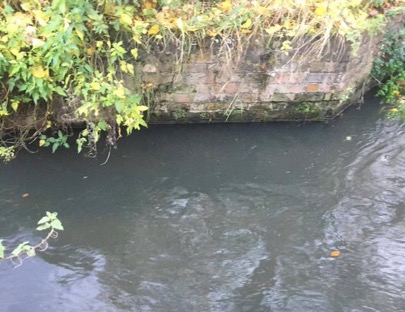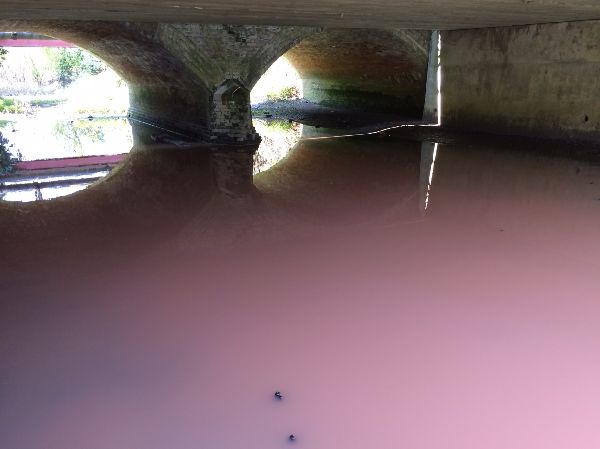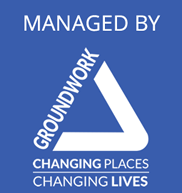Do we take rivers for granted? Surely they just look after themselves? English rivers were dirty in the 70s, hard to access and polluted. That’s all changed, they’re clean now and getting cleaner. Aren’t they? What do you think?
Tony Booker thinks very differently, he is passionate about our local rivers and spends every day protecting them. Our rivers are critically endangered and we are fortunate to have Tony who cares so deeply to champion them.
How much do we know about our local rivers?
For many of us they provide a peaceful walk or a pretty glimpse of a view from our cars and yet the Colne River and its associated waterways are what has formed the landscape we know as the Colne Valley, breathing life into the region for people and wildlife. Our rivers are the blue veins of the Colne Valley and yet how well do we look after them? Tony Booker was born in West Drayton and spent much of his childhood in or alongside the rivers. His love for the outdoors has meant he became a keen angler and conservationist dedicating much of his life to helping enhance and protect our local water courses, which is all keeping him very busy. He is the Chairman of the Colne Valley Fisheries Consultative and has many roles in helping our rivers and wildlife and is a good friend of the Colne Valley Park.
Tony reviewing the health of a river.
Tony tells us more about his journey to help protect our local rivers and wildlife…
“My passion for looking after rivers all started in my childhood years and after seeing such a gradual deterioration in the health of our water habitats I became really determined to try and help improve things. Some of the authorities may lead you to believe that our rivers have never been in a better state – talk of bathing standard waters is very mis-leading. A simple walk if you know what you are looking for will often confirm a very different water quality and in-depth analysis can produce truly scary results! A report in 2018 from the Environment Agency, warned that nearly nine out of our 10 rivers in England failed to meet standards for good ecological status as determined by the water framework directive and none meet good chemical status (*source below). The reality however does not seem to be creating the much-needed change for our future environment. Our government has repeatedly said that the UK wishes to be a world leader in conserving both the environment and biodiversity but has frequently failed to back this up with action.”
The increasing problem of river pollution and sewage, destroying the health of our rivers.
Why do our rivers need to be looked after?
“Rivers are just so important to all our lives and can, in so many ways, provide us with a sense of wellbeing. A healthy river is vital in creating rich, biodiverse habitats upon which so many species depend. They are linked to our groundwater supplies and can be affected by abstraction so if we waste water we waste our rivers – it is as simple as that!
Sadly, it seems the government does not recognise the simple fact that cheap water can encourage waste. Water companies are forced to hold, if not decrease water charges and that can directly relate to there not being enough investment into our water and sewage systems. Our catchment has one of the highest per capita uses of water anywhere in Western Europe and we need to improve upon that so we all have a role to play.
Another major blight is regular discharges of dilute but untreated sewage – especially at times of heavy rain events. Many of these are permitted discharges – some are not. Groundwater ingress into broken sewer systems doesn’t help but it all comes back to needing investment to improve infrastructure.
This can be extremely damaging, I have witnessed polluting incidents in which hundreds of dead fish have filled the rivers, everything becomes coated in sewage fungus, and this can last for weeks after a severe event. That leads to crashes in invertebrate numbers, and this negatively impacts everything higher up the food chain.
This is very concerning for people when so many of us enjoy our local rivers – would we really want our children to play in water which could be dangerous to their health?
Another big concern is the increasing problem and number of potentially polluting outfalls discharging into our rivers. Most should only be carrying surface run off and whilst even that is not ideal all too often misconnections are made – sometimes multiple examples into one surface drain. This occurs when a building’s foul waste is connected to surface water drains rather than the sewer system. Between the source of the Colne at Colney downstream to West Drayton my colleagues and I at the Colne Valley Fisheries Consultative (CVFC) have recorded over 200 such outfalls into the river. We still have from the remainder down to Staines to complete so many more will be added to the total. All too often it is voluntary groups needing to monitor these because the statutory organisations are not fulfilling the role. In part that is once again due to the lack of funding and resource being dramatically reduced, with the Environment Agency suffering significant cuts and therefore losing the ability, in very simple terms, to do its job.
I am just appalled at this complete lack of care and commitment to our environment and far more needs to be done before the damage is irreversible.”
Sewage entering local rivers from an outfall.
Dead fish from local pollution incidents.
How are you helping?
“I am on a constant mission to highlight these problems and to ‘call out’ those who are not doing what they should be. I ‘work’ voluntarily most days of the week – weekends and evenings are not exempt. I am overseeing or involved with numerous local projects in a bid to make a difference where I can. I liaise, among others, with Chloe Crompton (the Colne Valley Park’s river project manager) and Lydia Murphy (Herts and Middlesex Wildlife Trust) regularly on a wide range of river improvement and conservation projects. Affinty Water Ltd are also an active partner. Projects include reducing the spread of harmful non native invasive species, training local River Rangers, running river fly surveys and workshops for local people, helping to save Water Voles from becoming extinct and an angling and nature conservation training courses. Other initiatives include the monitoring of those polluting outfalls, aiding research into harmful pollutants in our rivers and more. These projects are lifelines to our wildlife and environment and there have been many great events happening to develop their impact. Dedicating so much time does mean sacrifices and it is why I am constantly looking for people who can share the workload.”
A species Tony helps to protect, the Water Vole.
So how can people get involved to help?
Read more here about Caring for Our Rivers In the Colne Valley Park.
-Walk, enjoy and keep an eye on your local rivers.
-Report any pollution incidents to the Environment Agency on 0800 807060
Please also report pollution incidents to Colne Valley Fisheries Consultative – National Pollution Reporting this helps maintain a crucial log of evidence for further action.
-Visit our website and social media channels to find out more about the projects and volunteering sessions.
-Or get in touch with Tony Booker to find out more ways to help – [email protected]
-Consider supporting us to improve and protect the Park by becoming a Colne Valley Park Friend.
– Ensure your rubbish is put in a bin or if the bin is full, please take it home with you as rubbish is often blown into rivers, polluting them and harming wildlife.
We would like to thank Tony for all his support to our projects and for being such an important voice to help our rivers from further deterioration.
We need more people like Tony, please do get in touch if you would like to help.
The River Chess, which feeds into the River Colne. Before …
…and After, a Sewage discharge.
Another pollution incident.
You can find more detail on this issue here Caring for our rivers in the Colne Valley Regional Park.
*Rivers Trust website – Only 14% of rivers in England are considered to be at Good Ecological Status within the Water Framework Directive – https://www.theriverstrust.org/2019/01/23/how-healthy-are-our-rivers/
